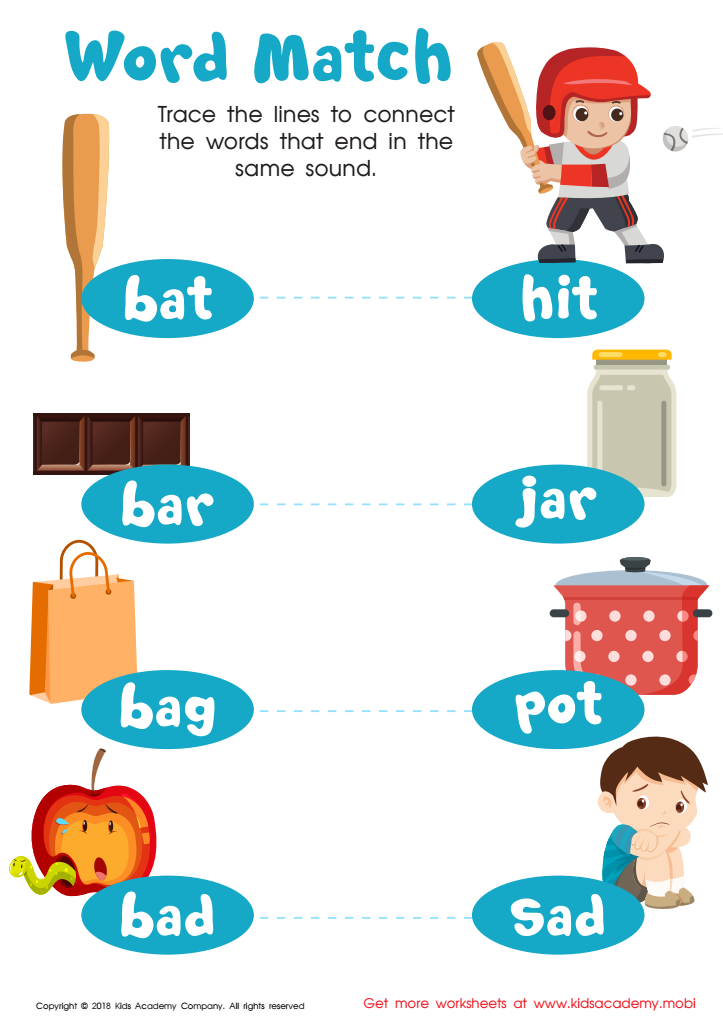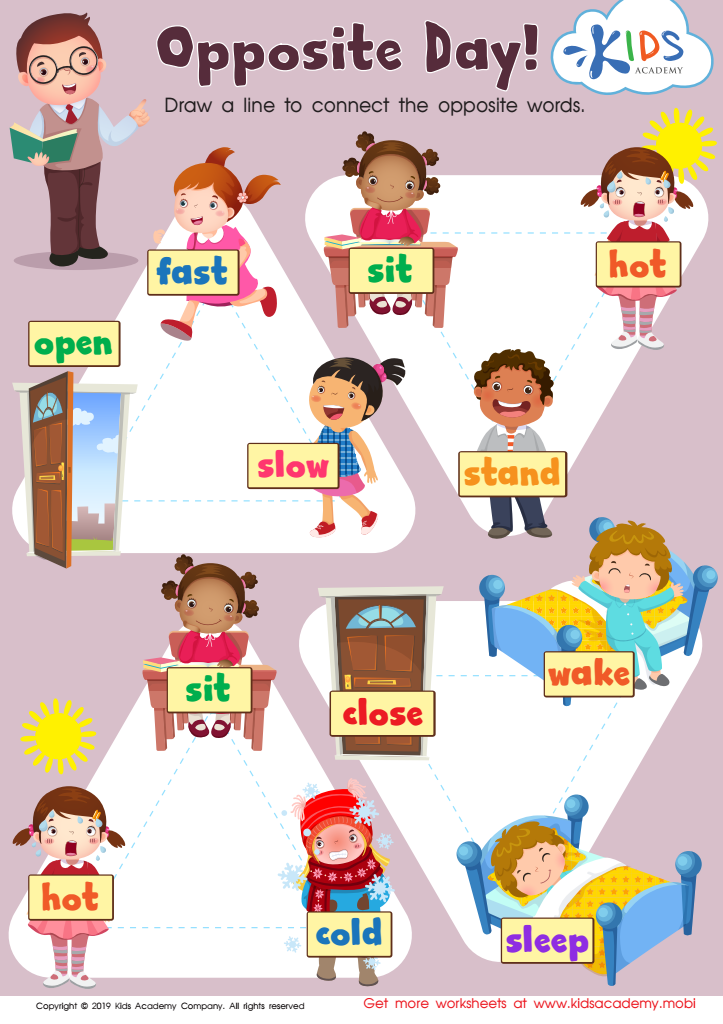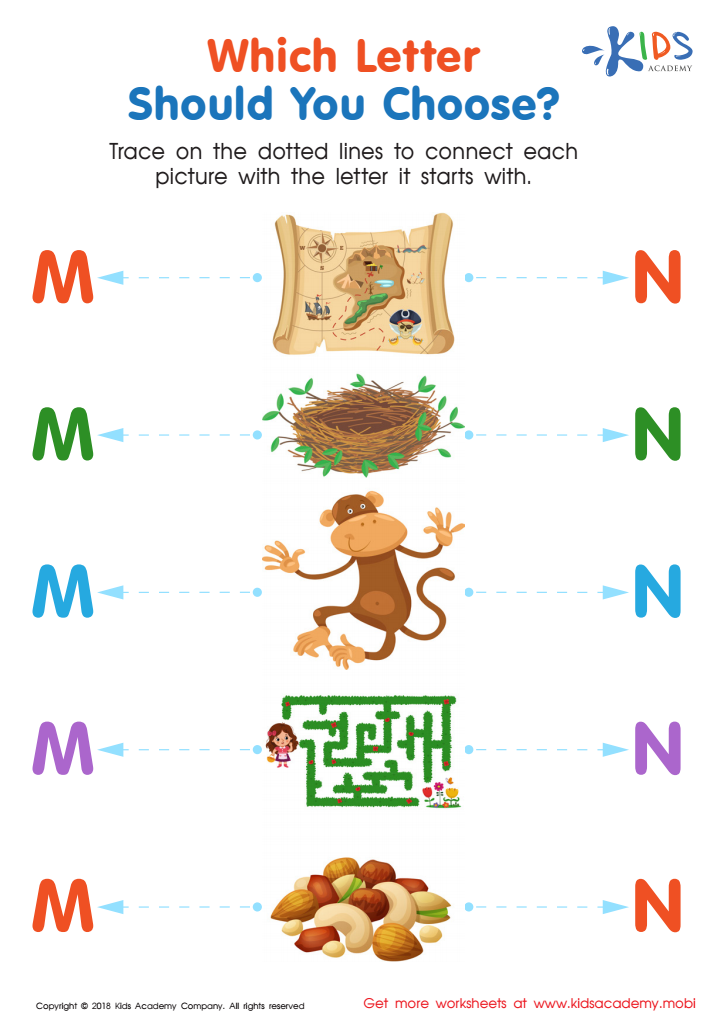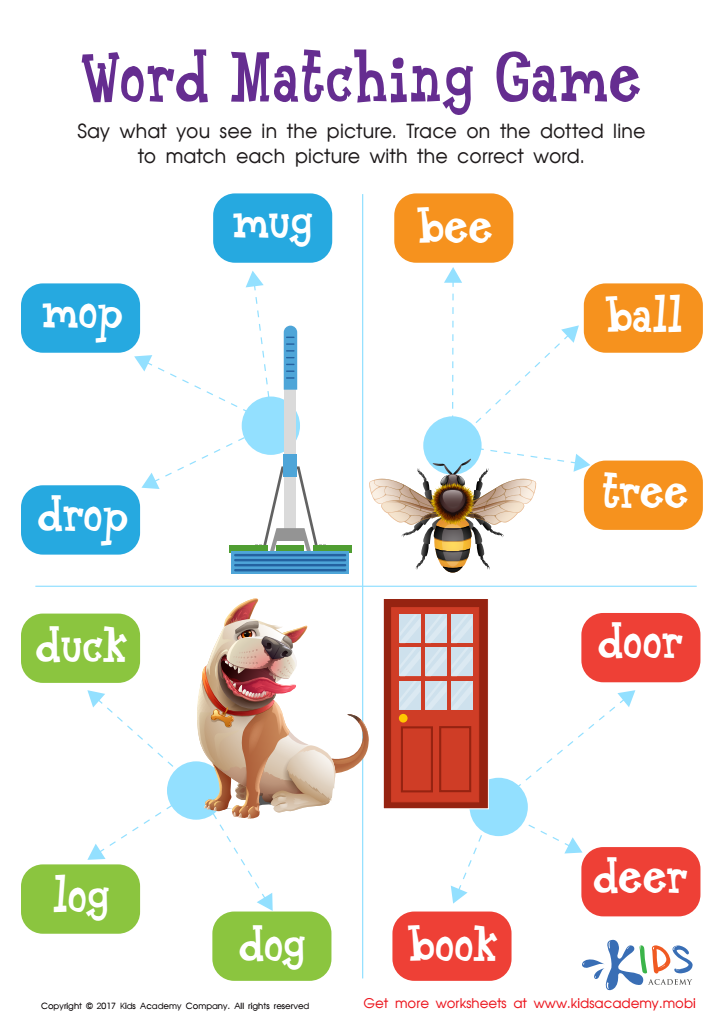Cognitive Development Normal Alphabet Worksheets for 5-Year-Olds
4 filtered results
-
From - To
Discover our comprehensive "Cognitive Development Normal Alphabet Worksheets for 5-Year-Olds" designed to boost early learning skills. Through engaging, child-friendly activities, these worksheets foster essential cognitive skills such as letter recognition, phonics, and early reading prowess. Each printable exercise not only makes learning the alphabet fun and interactive but also helps young learners develop deductive reasoning, memory, and concentration. Tailored for kindergartners, our worksheets seamlessly blend education with play, ensuring a holistic approach to early child development. Dive into a world of endless possibilities where your child's cognitive growth is supported every step of the way!


Word Match Reading Worksheet


Opposite Day Worksheet


Which Letter Should you Choose? Worksheet


Word Matching Game Worksheet
Parents and teachers should care about Cognitive Development Normal Alphabet (CDNA) for 5-year-olds because it is a critical phase in a child's educational and overall cognitive foundation. At this age, children are rapidly developing key intellectual skills such as memory, attention, pattern recognition, and basic problem-solving. Learning the alphabet is more than memorizing letters; it connects to understanding language, communication, and literacy, which are crucial for their future academic success.
The alphabet is the building block of literacy. Efficiently grasping it ensures children can advance to recognizing words, reading sentences, and eventually understanding complex texts. These early literacy skills are directly linked to later academic achievement. Additionally, knowing the alphabet helps in developing phonemic awareness, which is the ability to hear and manipulate the sounds of spoken language—a fundamental skill for reading.
Teachers and parents play a vital role in this developmental stage by providing an enriched environment filled with engaging alphabet-related activities. Through a systematic and supportive approach, we lay down a strong foundation for the child’s ability to decode new words, comprehend instructions, and confidently navigate more complex subjects.
Moreover, mastering the alphabet fosters a sense of accomplishment and boosts self-esteem, encouraging a love for learning. Combined, these cognitive benefits equip children with the prerequisites for academic and everyday life skills.
 Assign to My Students
Assign to My Students















